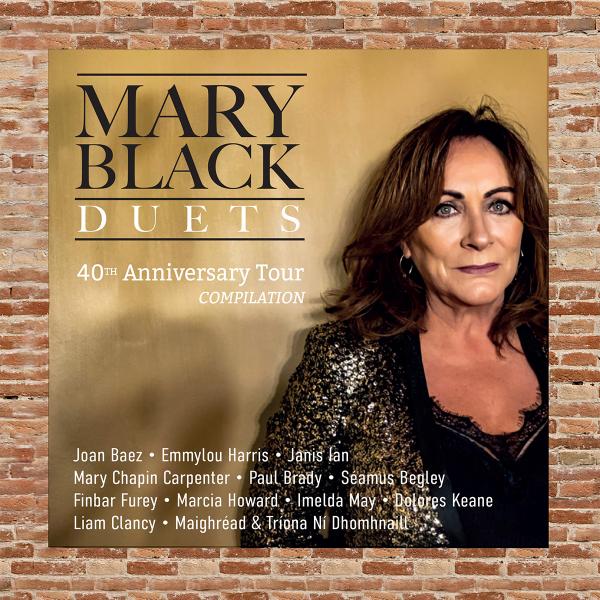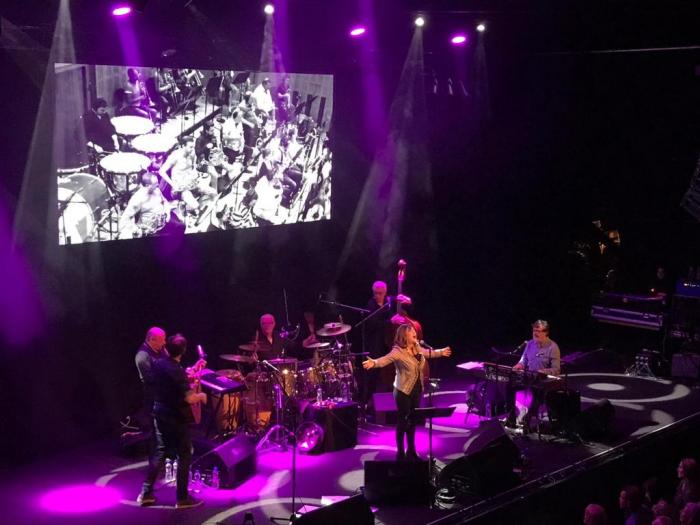Mary Black: The Irish singer who took her music to the world
Mary Black is a straightforward character. She is street-smart in the way you'd expect a kid born into a working-class Dublin suburb 60 years ago to be; she is also disarmingly generous. About 10 years ago, I met her as the friend of a friend. When next I went to Dublin, her hospitality was humbling.
Down the Crooked Road, the autobiography she has written to accompany the series of farewell tours that will soon bring her to Melbourne, is an account of a life that is both remarkable and unremarkable, the story of someone who had an international singing career but always understood that she was a product of the place she came from. It was a world in which love had a practical value. During her childhood, when the Black family kitchen got badly burnt cooking the Christmas dinner, another Christmas dinner was hastily provided by neighbours from their tables.
Her childhood was shared between Dublin and Rathlin Island off the north-east coast of Ireland where her father Kevin came from. He was a plasterer who played lots of instruments, "none of them brilliantly well". In 1949, he married 33-year-old Patty Daly who loved to dance and, as the Irish say, had "light feet".
All five of their children were musical and, at different times, they have performed as the Black Family. Before one of their early gigs, they were in the wings nervously waiting to go on when Michael, the eldest brother, said, "Ah well, if they can't take a joke, f--- 'em". They took the stage laughing, the tone for the evening was successfully set and young Mary had learnt a valuable showbiz lesson.
Black is a woman of presence and charm. She is not, however, someone whose personality overflows in an interview, which is why her book is important for anyone wishing to understand both her and her career. Ten pages in the middle of Down the Crooked Road amply illustrate the character of the narrator. The year is 1983. She has just been approached by the Irish traditional band De Dannan? to sing with them, most particularly a number called Song for Ireland, which was to become her anthem. She agreed.
Black writes: "A week later I got another call. This time from Maura O'Connell, who I'd never met before. She had heard I was joining the band and was calling to wish me well. She enjoyed her time with De Dannan but wanted to return to her own style of music ... As we came to the end of the conversation she asked me, 'Can I give one piece of advice?' I said, 'Of course.' There was a short silence before she said emphatically, 'DON'T. TAKE. ANY. SHIT'."
The book then tells of how, in London for eight or nine days recording an album with De Dannan, she missed her firstborn, Conor, "something terrible". While the rest of the band were doing instrument takes, she took a walk around some nearby shops and spotted a mother with a little boy in a buggy who looked like her son.
"I must have been in some sort of hormonal motherly state," she writes. After about 15 minutes of following the woman around the shop she realised that she was acting like a stalker and the woman was beginning to notice.
"I walked away feeling even worse than before. It was the first time I'd been separated from my child but I think I knew even then that this feeling of yearning was something I'd have to learn to live with if I wanted a singing career. And I was right. That longing for my children was something I would carry with me throughout my career and it would never get any easier."
The following March, she toured America with De Dannan. There was friction between her and band leader Frankie Gavin. "He would sometimes talk to me as if he was my boss and as far as I was concerned, when it came to the songs I sang, I was my own boss." One night, he forgot to include her in the encore, deciding on the spur of the moment to take the band in another musical direction. "I don't lose my temper very often," she writes, "but when I do people know about it." Gavin soon knew about it. "From that moment on we got on like a house on fire."
Basically, the book has two themes – family and songs. We spoke about this when I rang her in Dublin a few weeks ago. "In the folk tradition, songs are passed on. You get songs from older people; you're always on the lookout for good songs." A songwriter, she says, is someone who makes your ears prick up and want to listen.
By utilising the talents of some of the best contemporary songwriters in the Irish tradition, she has kept her music attuned to the moods of her time. Along with Noel Brazil and Jimmy McCarthy, Warrnambool's Shane Howard is one of these songwriters. "Mary has brought the folk tradition forward," Howard says. Asked to describe her voice, he replies, "It's an extraordinary voice. It has truthfulness and purity of tone combined with a deep understanding of what she's singing about."
She says: "When you start, you think singing's all about the voice but it's more than that – it's about interpretation, about communication. The unsung note can be as important as 20 that you sing. When I started I knew I could do things with my voice that were impressive but a good performance is about moving people, about making them feel good and emotionally charged. You have to work at singing – it takes time and effort."
In her book, she acknowledges learning a lot during her time with De Dannan because they were "so good at what they did I had to give every song I sang my absolute best to get the same response from the audience (I've always had a competitive streak). I learnt that it's not enough to be a good singer; you have to put your heart and soul into every performance and take nothing for granted."
The book contains one story that is not easily forgotten. One night, as her elderly bedridden father approaches his death, the narrator is feeding him. Mary's mother walks into the room. Her father asks who the "good-looking woman" is. "That's your wife," Mary says. The old man is delighted. His sons then carry him in their arms around the family home showing him photos and objects, telling the old man the story of his life as they do. He can't believe his good luck and dies three weeks later.
The alpha and omega of the book is Black's husband, Joe O'Reilly, who is also her manager. Joe didn't travel, holding the fort while she was away. "But when I came home I was a full-on, hands-on mum. If an opportunity came when the kids were at home and it didn't suit me, I said no." A grandmother now, she's giving up what she calls "the long tours". What she's not giving up is singing. "It's always been about the songs."
Mary Black performs at The Forum on March 17. ticketmaster.com.au Down the Crooked Road is published by Transworld at $29.99.


